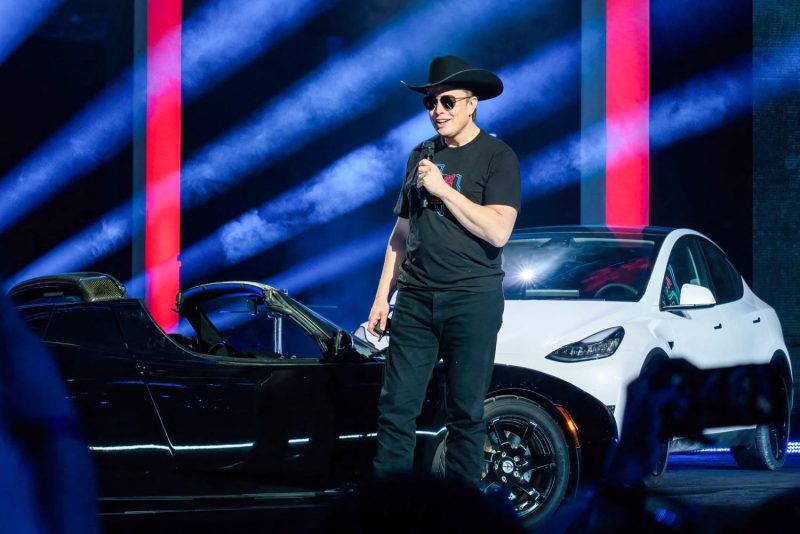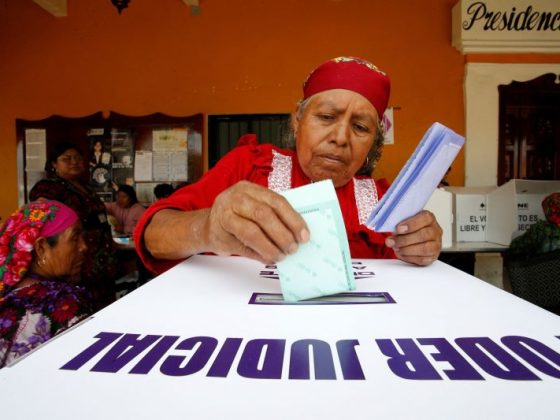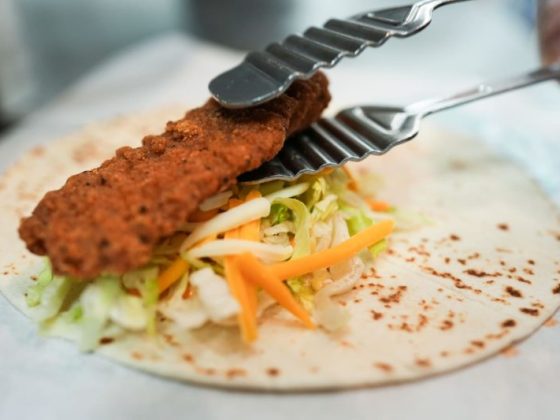Tesla’s long-awaited entry into the robotaxi market — expected later this month — is coming to Austin, Texas, which has emerged as a key battleground for self-driving technology.
CEO Elon Musk wrote in a post on X last week that the company has been testing Model Y vehicles with no safety drivers on board in the Texas capital for several days.
Tesla’s Austin robotaxi service will kick off with 10 vehicles and expand to thousands, moving into more cities if the launch goes well, Musk said in a May 20 interview with CNBC’s David Faber.
But while the market remains nascent, Tesla already faces a hefty amount of competition.
The electric vehicle maker is one of several companies using Austin as a testing ground and debut market for self-driving technology. They’re all taking advantage of Austin’s robotics and AI talent, tech-savvy residents, affordable housing relative to other technology hubs and a city layout with horizontal traffic lights and wide roads that makes it particularly conducive to mapping software.
But the biggest reason they love Texas may be the state’s robotaxi-friendly regulation.
Already in Austin are Alphabet’s Waymo, Amazon’s Zoox, Volkswagen subsidiary ADMT, and startup Avride.
Waymo began offering robotaxi rides in Austin with Uber in March. Zoox started testing there last year, while ADMT has been testing Volkswagen’s electric ID vehicles in the city since 2023. Avride is headquartered in Austin and is testing its autonomous vehicles and delivery robots in the Texas capital. Avride said it plans to begin offering paid robotaxi rides in the city later this year.
“The winners of the space are emerging, and it’s just a matter of scaling,” said Toby Snuggs, head of sales and partnerships at Avride.
According to Uber, its Austin launch with Waymo has proved successful thus far. Uber CEO Dara Khosrowshahi told investors in May that riders are choosing the robotaxis over regular cars, and the company is preparing to scale its Austin autonomous fleet to hundreds of vehicles in the coming months, ahead of a robotaxi expansion into Atlanta later this year.
“These approximately 100 vehicles are now busier than over 99% of all drivers in Austin in terms of completed trips per day,” Khosrowshahi told investors in May.
Avride, which spun out of former parent company Yandex last year, has delivery robots in a fleet of about a dozen Hyundai Ioniq 5 vehicles in downtown Austin. The company said it plans to expand its Austin fleet to 100 vehicles later this year and aims to begin offering robotaxi rides in Dallas with Uber in 2025.
Tesla primarily relies on camera-based systems and computer vision to navigate its vehicles rather than the Waymo model of using sophisticated sensors such as lidar and radar. Tesla’s “generalized” approach to robotaxis is more ambitious and less expensive than Waymo’s, Musk said during Tesla’s first-quarter earnings call with investors in April. Musk has been promising Tesla investors that a self-driving car is on the way for roughly a decade and has repeatedly missed self-imposed deadlines.
“There’s probably a lot of ways it can be done, but we’re the only ones that have done it,” Waymo co-CEO Tekedra Mawakana told CNBC’s Deirdre Bosa in May. “We’ve been doing it 24 hours a day for almost five years. And so to us, it’s really important to focus on safety … and then cost — not cost and then safety.”
“You have to be able to see at night, you have to be able to have this vision that’s better than humans,” Mawakana said.
In addition to Austin, Phoenix is an AV hub for companies such as Waymo, which has been testing in the region since 2016. Waymo and the auto manufacturer Magna International announced in May that they plan to double robotaxi production at their new plant in the Phoenix suburb of Mesa by the end of 2026.
The San Francisco Bay Area, where Google began working on its self-driving car project in 2009, also has a large fleet of Waymo vehicles. Waymo opened its paid ride-hailing service to all local users almost a year ago, and said earlier this year that it’s expanding its service to include another 27 square miles of coverage in the region. Zoox is also testing in San Francisco.
While Tesla was started in the Bay Area, Musk moved its corporate headquarters to Austin in late 2021. In California, regulators at individual municipalities closely control where and how companies can operate autonomous vehicles. Texas has more relaxed regulations that benefit AV companies.
When Waymo decided on Austin, it “looked at the operational structure and how friendly the regulatory environment is,” said Shweta Shrivastava, Waymo’s senior product and strategy executive. “It’s a tech-forward city — there’s a lot of openness in terms of welcoming and adopting new technologies, so that’s been great.”
Part of that friendliness is a 2017 Texas law that prohibited municipalities from regulating autonomous vehicles, giving the state full authority.
“It’s not like California, where you have certain regulations in LA, separate regulations in San Francisco, and municipalities between,” said Yulia Shveyko, Avride’s head of communications. “In Texas, it’s the same all across the state, and this is one of the great things about being here as an operator.”
The state is responsible for establishing the framework for autonomous vehicle operation, which includes that AVs must adhere to the same regulations as traditional vehicles, including registration, insurance and compliance with traffic laws. Texas law also requires AVs to have data recording systems to document potential accidents and incidents.
The Texas Department of Transportation’s “role is to work with autonomous vehicle (AV) companies on what is needed to ensure the state’s infrastructure is prepared for the safe and efficient rollout of AVs,” a spokesperson said in an emailed statement.
Texas law allows for AV testing and operations on Texas roadways, “as long as they meet the same safety and insurance requirements as every other vehicle on the road.”
Companies are choosing to test their AVs in Austin because of its “lower barriers both in terms of regulation and the acceptance by consumers in the area,” said Wassym Bensaid, chief software officer at EV maker Rivian.
“This is really what makes Austin and San Francisco more open to this technology,” Bensaid added. Rivian in March rolled out a “hands-free version” of its driver-assistance system for highway driving, and the company plans to have an “eyes-off-hands-off” system available by the end of next year, Bensaid said.
Texas’ transportation department created an AV task force in 2019. Formal meetings take place two to four times per year. Members of the task force include representatives from other agencies in the state and public entities as well as key industry stakeholders, its website says.
Waymo is an active member of the task force, the company confirmed.
The state’s transportation department didn’t respond to CNBC’s requests for further information about the task force.
Waymo has built goodwill with Austin officials by engaging with Texas stakeholders since it began testing in the city in 2015, the company told CNBC.
Known then as Google’s self-driving car project, the company started driving on Austin streets a decade ago with safety drivers on board.
Waymo closed Austin operations in 2019 to focus on its testing efforts in Phoenix, the spokesperson said, adding that it returned in March 2023, when the company’s technology was “more mature.”
Long before Waymo began testing in Austin, University of Texas at Austin’s Peter Stone entered his team’s vehicle in the Defense Advanced Research Projects Agency Urban Challenge in 2007. Stone is the director of the Learning Agents Research Group at UT, and his team’s entry was called Austin Robot Technology — one of the first deployments of a partially automated driving system on the streets of Austin.
Stone has been at the university for 23 years and has taught several students who are now employees at Waymo and other car companies, he said. Advancements in machine learning and years of testing have contributed to companies such as Waymo being able to navigate roads better than some human drivers, he said.
Officials from around the U.S. and the world are looking to Texas as a model for self-driving regulations, experts said. Some regulation, however, is still being sorted out.
Lewis Leff, City of Austin assistant director, said that more cities are reaching out to ask, “How do you handle these situations?” Cities that have inquired include New Orleans and Nashville, Tennessee, as well as some outside the U.S., Austin officials told CNBC.
“We were in Japan launching our service with Rakuten earlier this year and the minister of economics, and the questions they were asking was, ‘What is the regulation in Texas like?’” Avride’s Snuggs said.
Meanwhile, the AV industry is pushing for federal-level standards that would ease regulatory uncertainty around putting new tech on public roads. In Tesla’s third-quarter earnings in October, Musk said that should Donald Trump win the coming election, he would use his influence with the administration to push for federal AV regulation.
As president, Trump and his transportation secretary, Sean Duffy, have both been supportive of federal-level standards, Waymo’s Mawakana told CNBC in May, adding that she’s “optimistic” it will be arranged sometime during this presidential term. Waymo supports proposed federal frameworks for national safety standards and has voiced that support to the Trump administration, a company spokesperson said.
“Now’s the time,” Mawakana said, pointing to places such as China, which invests in AV supply chains and grants and has federal AV rules. “We should be in the exact same position.”
The concentration of regulatory power, however, comes with some concern that cities will be mostly powerless should issues arise, experts said.
A state senate transportation hearing in September addressed the lack of regulation in Texas for driverless vehicles.
“To many of our first responders communities, this is new territory for them,” Democratic Texas state Sen. Sarah Eckhardt reportedly said at the hearing. “I mean pulling over an autonomous vehicle, you know, what do you do? An autonomous vehicle in an accident, what do you do?”
In one example, Houston city officials reportedly faced delays in enforcement instructions from state regulators after Cruise cars caused a backup on the city’s Montrose Boulevard in 2023.
Texas has at least 17 companies that have deployed or tested on roads, said Nick Steingart, director of state affairs at Alliance for Automotive Innovation, at the state hearing.
“As the technology matured and evolved, we fully expected that the laws would evolve as well,” Steingart said.
The state is considering legislation that may provide some clarity, according to Austin’s transportation department.
Several AV companies in Austin have safety protocols and proactively work with local first responders. Zoox, for example, has held trainings with first responders and met with city officials, a spokesperson said. But there is technically no requirement for AV companies to engage with emergency services, Austin officials confirmed.
Companies hoping to succeed in Texas often begin their conversations with the state by focusing on safety first, Austin’s Leff said. “They note their technology can recognize a fire vehicle or a hand signal, so there’s a lot of focus on things like that,” he said.
Austin’s transportation department has been collecting information about incidents that pose a risk to public safety and relaying that data to the appropriate operators, the city said. It places “all reports we receive about AV incidents into our dashboard, about half of which over time have come from our city department colleagues,” city officials said.
Waymo, which has become one of the most visible leaders in the robotaxi market, has said it has made safety a priority. Mawakana and co-CEO Dmitri Dolgov told employees at a November all-hands meeting that they should scale up as aggressively as possible but do so with safety at the forefront of all their efforts, people familiar with the matter told CNBC. The people asked not to be named because they were not authorized to speak publicly.
Waymo tracks incidents involving its vehicles but doesn’t share city-level data publicly, a company spokesperson said.
With Texas regulation around AVs relatively lax, some AV makers worry what impact a collision by one of the players in the state could mean for the entire industry.
“It takes a long time to earn trust, and it doesn’t take that long to lose it,” Mawakana said. “There can always be an overreaction by regulators — their job is to protect the public.”
Already, the AV industry has suffered a number of black eyes. General Motors shut down its Cruise robotaxi service in December after one of its vehicles dragged a woman 20 feet on a street in San Francisco in 2023. Uber also pulled out of the self-driving space after one of its self-driving test vehicles struck and killed a woman in Arizona in 2018.
In Austin, a woman posted a TikTok video in April showing a Waymo vehicle that she said had abruptly stopped underneath a highway with her and another passenger inside. After other cars began honking at them, they contacted customer support for help but were told the Waymo couldn’t be moved. The woman said the car locked the passengers inside until they threatened to go live on TikTok.
“Now we’re walking,” the woman says in the video, “and our Waymo is still there. This is insane.”
Riders “always have the ability to pause their ride and exit the vehicle when desired by pulling the handle twice — once to unlock and another to open the door,” a Waymo spokesperson said in response to the video.
Despite such incidents, UT’s Stone said he thinks cities are being overly cautious.
“The standard people are aiming for is perfection, and the standard they should be aiming for is better than people,” he said. “A fatal car accident rarely makes the local news, but if autonomous cars reduce that number, it should be seen as a huge societal win.”
— CNBC’s Lora Kolodny and Deirdre Bosa contributed to this report.


